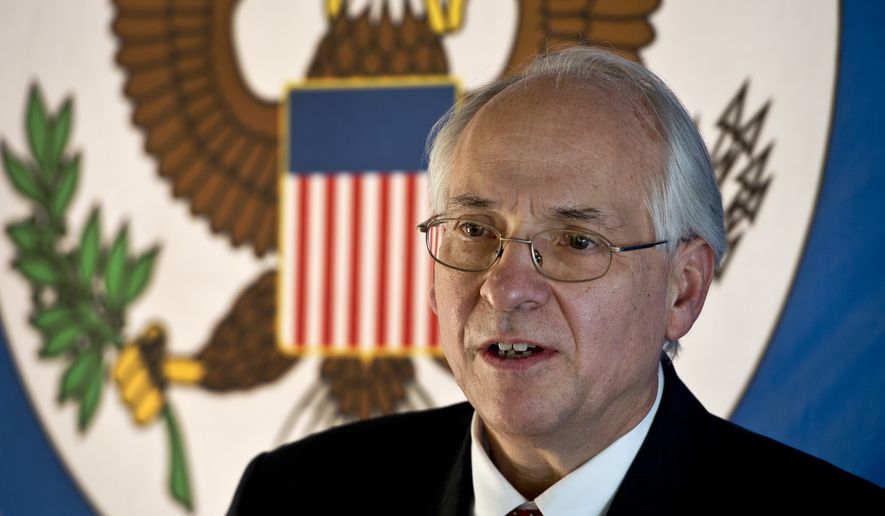The Trump administration is stepping up pressure on the military-controlled junta to move quickly to a civilian-led government after the April ouster of longtime authoritarian President Omar al-Bashir, raising the prospect of sanctions if the junta fails to comply.
State Department officials told a Capitol Hill hearing Tuesday that sanctions were being considered because of signs that the Trump administration is heeding calls to become more involved in the violent standoff in the oil-rich African state. Donald Booth, the U.S. envoy to the crisis, met Wednesday evening with representatives of the Transitional Military Council and the leading civilian protest group, the Forces of the Declaration of Freedom and Change.
The standoff escalated sharply after government security forces fired on massive street demonstrations in Khartoum and other cities early this month, killing dozens of protesters in the capital and more than 100 others across the country.
“If there is any repeat of the violence and assault on June 3, there will be consequences,” Makila James, deputy assistant secretary of state for East Africa, told a House Foreign Affairs subcommittee Tuesday in the first public hearing on Capitol Hill on the crisis. “We’re looking at all options, including sanctions down the line, should there be any kind of repeat of violence.”
Mr. Booth told Sudan’s Ashorooq.net that his talks were aimed at reaching a political consensus and transitioning to democratic rule as quickly as possible.
“The consultations aimed to push the parties to resume direct negotiations,” said Mr. Booth, who met with Arab League head Ahmed Abuel-Gheit in Cairo after wrapping up a four-day visit to the Sudanese capital Thursday.
Rep. Karen Bass, the California Democrat who chaired Tuesday’s hearing, said it was important that the U.S. government take a clear stance on the crisis.
“We want to make sure that we have a strong, unified message and hope the citizens of Sudan realize the goal is citizen-led transition of power,” she said.
Despite the junta crackdown, peaceful protests have continued with plans for another mass demonstration Sunday. Democracy activists told The Associated Press on Thursday that they had received a new joint proposal from the African Union and Ethiopia aiming for a peaceful resolution of the crisis.
Military leaders rejected an earlier proposal by international mediators.
Private analysts say the U.S. and other outside powers need to keep heat on the junta to make a deal.
“We need to push them to continue to engage seriously in the mediation,” said Elizabeth Murray, senior program officer for the Middle East and Africa at the United States Institute of Peace. She said African and regional organizations are in the best position to press for a resolution.
“We need to push the TMC to first meet the preconditions that the opposition has set out, including the return of the internet, releasing political prisoners and getting the [militias] outside of Khartoum,” she said.
Critics say the military junta is reviving many of the tactics Mr. al-Bashir once used to suppress dissent, even deploying an updated version of the dreaded Janjaweed militias widely criticized for their terrorist tactics against separatist forces in the Darfur region in the early 2000s.
Ms. James told lawmakers that the United Arab Emirates and Saudi Arabia have offered a collective $3 billion to ease the country’s political transition, but some worry that support may slow the process of democratic reform.
“The United States should employ robust financial tools to put pressure on the military leadership and stop corrupt Sudanese elites from illicitly moving their assets out of the country,” said Omer Ismail, a senior adviser at the Enough Project.
Mr. Ismail said the demonstrations planned for the 30th anniversary of the military coup that put Mr. al-Bashir in power will get the “word out to people all over the world.”




Please read our comment policy before commenting.